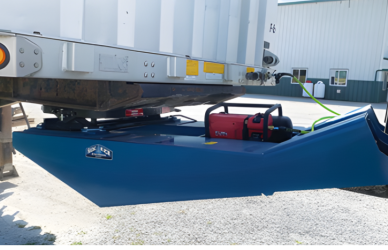Starting a career as a commercial truck driver begins with securing your Commercial Driver’s License (CDL). However, specific factors can prevent you from earning your CDL. Knowing what could disqualify you is key to preparing for a successful career in the trucking industry.
Minimum Age Guidelines
Your age determines whether you qualify for a CDL. These requirements differ based on the type of driving you intend to do:
- Interstate Driving (crossing state lines) requires you to be at least 21 years old.
- Intrastate Driving (within a single state) allows individuals aged 18 and up to obtain a CDL.
Medical Disqualifications
Certain medical conditions can make you ineligible for a CDL. The Federal Motor Carrier Safety Administration (FMCSA) outlines specific criteria under 49 CFR 391.41 that applicants must meet. Common medical issues that may disqualify you include:
- Hearing Impairments – Failure to meet federal hearing standards.
- Vision Problems – Not meeting required eyesight levels.
- Epilepsy or Seizures – A history of epilepsy or seizures.
- Diabetes Requiring Insulin – Using insulin to manage diabetes.
That said, exemptions can sometimes be granted. Consult a certified medical examiner to assess your eligibility and explore any possible waiver options.
Substance Abuse History
A record of drug or alcohol abuse can disqualify you from obtaining a CDL. The FMCSA has strict regulations to ensure commercial drivers remain free from substances that impair their judgment or ability to drive safely. Failing drug or alcohol screenings during the application process, or having unresolved violations related to substances, can jeopardize your chance of earning or keeping your CDL.
Traffic Violation History
Your driving record is a significant factor in CDL eligibility. Serious traffic offenses may disqualify you, including:
- Excessive Speeding (15 mph or more over the limit).
- Reckless Driving—showing careless disregard for safety.
- Unsafe Lane Changes—frequent or improper lane switching.
- Tailgating—following other vehicles too closely.
- Traffic-Related Fatalities—committing offenses that result in fatal accidents.
Repeat violations over time can lead to extended periods of disqualification. Demonstrating a history of responsible driving is essential.
Criminal Convictions
Certain criminal convictions may bar you from obtaining a CDL, depending on their nature and severity. Disqualifying crimes include:
- Felonies Committed with a Commercial Vehicle – Using a truck to commit major offenses.
- Drug Offenses – Convictions involving controlled substances.
- Crimes Endangering Public Safety – Examples include vehicular manslaughter or other offenses posing risks to others.
The time elapsed since the conviction and its relevance to driving safety will likely influence any eligibility determinations.
Legal Work Authorization
Only individuals with the legal right to work in the U.S. are eligible for a CDL. Acceptable proof includes being a U.S. citizen, holding permanent residency, or maintaining a valid work visa. You’ll need to submit evidence of your legal status during the application process.
Staying Prepared for CDL Eligibility
Securing a CDL means meeting clear federal and state guidelines. Understanding potential disqualifications—whether related to your age, health, driving record, or legal status—is the first step to achieving a commercial driving career. Be proactive, address any outstanding issues, and consult a certified medical examiner or legal professional if needed.
A career in trucking offers incredible opportunities, but ensuring compliance with necessary regulations will help set you on the right course for success.











